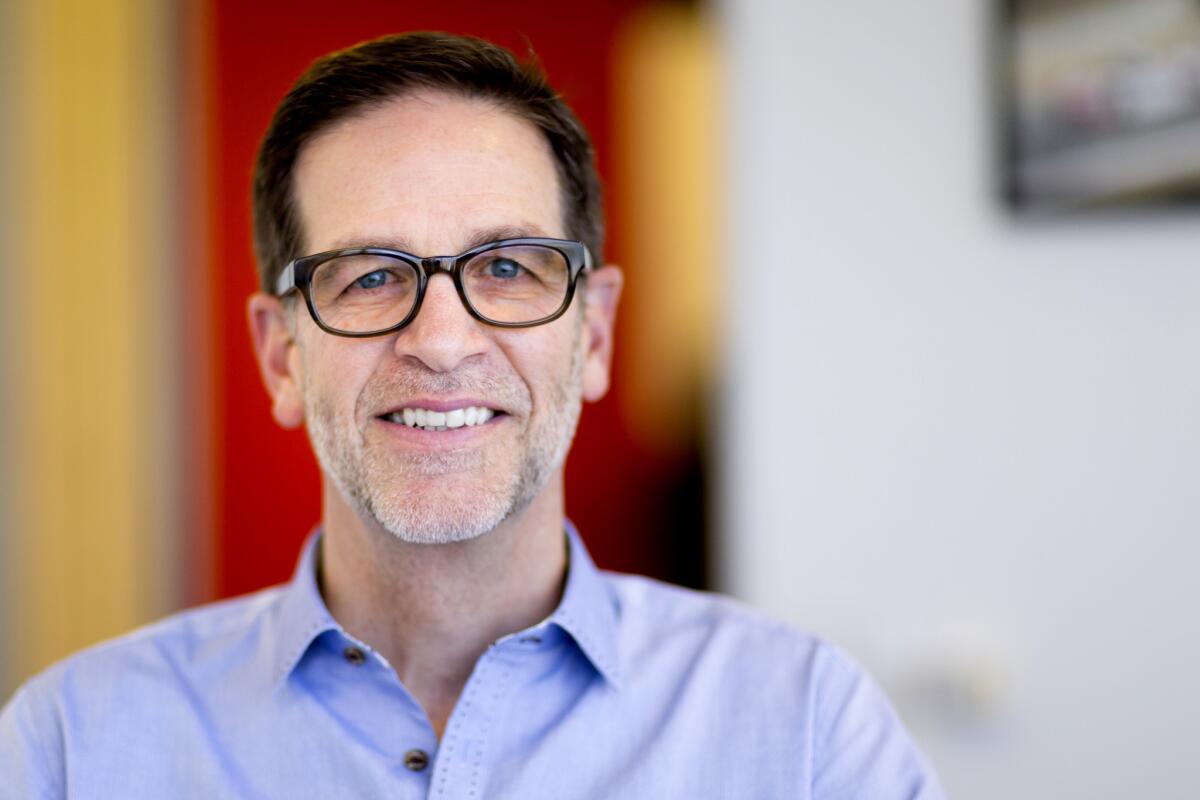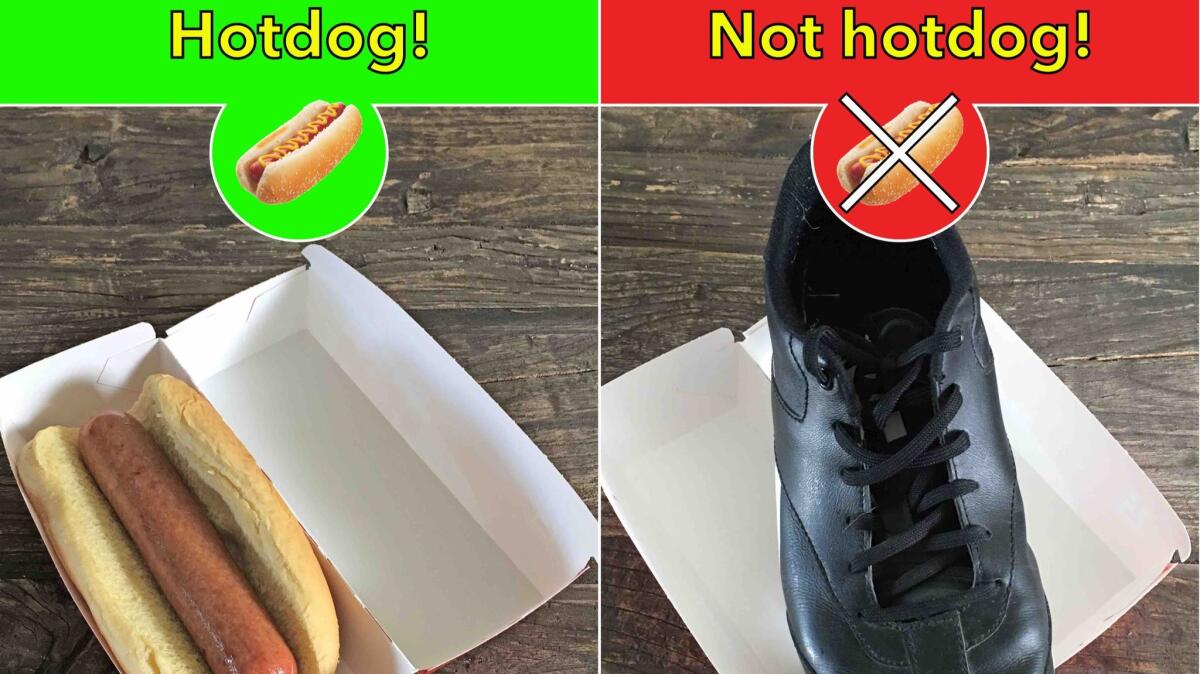Boingo Wireless surges above its IPO price for first time ever as new strategy finally connects
With free Wi-Fi growing abundant and cellphone plans losing data limits, the best days would seem to be in the past for a company known for $10-a-month plans to access Internet hot spots at airports and cafes.
Instead, Boingo Wireless is on the rise. Last month, the Los Angeles company saw its shares close for the first time ever above its initial public offering price of $13.50 in 2011. Shares closed at $16 Monday, making for a market capitalization of $624 million.
Boingo’s Wall Street ascent shows that the company’s transformation strategy has paid off, said Chief Executive David Hagan. Charging consumers to get on Wi-Fi at shops around the world — about 55% of Boingo's revenue in 2011 — is now down to about 20%.
Today, Boingo’s sales primarily come from selling technology installation and operation services to big public-gathering places and cellphone service providers including Verizon and Sprint.
“You’ve seen the stock finally rebound based on the strength of the business,” Hagan said. “The strategy transformation is done, and now we have incredible growth potential.”
Boingo is a couple of years away from generating profits, which it hasn’t done since 2012, Hagan said. But the company points to free cash flow, a non-standard measurement, to provide a sense of how much profit it could generate. Free cash flow reached $8 million in the first quarter — or more than in all of 2016.
Financial analysts who study Boingo expect the company to reach $188 million in sales this year, jumping 18% from 2016. Estimated losses are $25 million, a 7% shedding off last year’s loss.
For most of Boingo’s time on Nasdaq, shares held under $10. Hagan told investors that the company would wean itself off the increasingly out-of-fashion subscription plans. He spent aggressively on hiring new salespeople, boosting marketing, acquiring rivals AWG and Endeka, and introducing wireless technology onto military bases.

The efforts brought Boingo dozens of new customers in the last year. The company’s Wi-Fi technology or cellphone antennas are in place at 141 venues, including 59 military outposts. Nearly 80 more venues have installations pending.
How Boingo gets paid varies.
Boingo usually gets cellphone service providers to collectively fund the pricey installations, taking a profit of about 20% on the deal, and then charges them recurring access fees. With newer, more affordable technology that’s aimed at smaller venues, Boingo can front the cost and charge rent.
On military bases, Boingo recoups expenses by selling monthly subscriptions for Internet access to service members, similar to a
With Wi-Fi, most venues now pay Boingo for setup and maintenance. Some continue to offset costs by allowing Boingo to sell ads that Internet surfers encounter before logging in. But ad revenue is dropping. It came in at $2.3 million during the first quarter, down 6% from the same period last year, as Boingo dropped app-installation ads and concentrated on less lucrative 30-second video ads.
“Venues know they have to get great wireless coverage. It’s going to cost them business if they don’t,” Hagan recently said at an investor conference. “And so, they’re not looking for revenue” anymore as much as good service.
Boingo expects to be able to enter venues much smaller than stadiums and arenas as small-cell technology improves in the coming years. The luggage-sized antenna boxes don’t have the range of the big cellphone towers familiar to most people, but they’re cheaper. Hurdles remain, including getting small cells to work with devices from more than one cellphone service provider. Such issues are where much of the 315-employee company’s research efforts are aimed.
Hagan said Boingo plans to keep investing its cash in research and installations, forgoing dividends or a ballooning bank account. But any missteps could bring fresh scrutiny from activist investors such as Legion Partners Asset Management, which holds a stake of more than 5%. Last year, Legion agreed to hold off any proxy fights until after Boingo's annual shareholder meeting, which is scheduled for June 8.
HBO’s ‘Silicon Valley’ developed the Not Hotdog app in Los Angeles. Is it a template for Hollywood?

Writers of the Silicon Valley-spoofing HBO comedy “Silicon Valley” had an idea for app. It would do for food what Shazam does for music, which automatically recognizes the tune from a sample.
They wrote the app into the show in typical "Silicon Valley”-style: In reality, the artificial intelligence powering the app was only good enough to recognize photos of hot dogs. That’s when the show’s technical consultant told them, well, such an app could actually be built. The production team jumped on the idea, and last week (in conjunction with the relevant episode) HBO released a companion app for a show for the first time.
The show “often finds great comedic opportunities when it examines technologies that software engineers and startups are buzzing about,” said lead technical advisor Todd Silverstein. “When we dug into some of the emerging artificial intelligence platforms as part of shaping the episode, we realized that we could also 'make the world a better place' by actually building something fun — and not very useful."
HBO declined to provide usage statistics for Not Hotdog, which is available in the U.S. and Canada for iPhones. Research firm Apptopia estimates that about 6,000 people downloaded the app last week. The app was among trending selections on the app store, and among the top 10 most popular food and drink apps.
“I had this view of AI and machine learning being complicated,” Tim Anglade said. “But this was entirely built by one developer with just a MacBook Pro and an extra computer because there’s so many resources already out there.”
The show’s production designers weighed in on the app design. They wanted to ensure it looked cheap and shoddy to match the erratic and inexperienced character behind the app on the show. That pretense would also help people explain away any bugs in the app.
The HBO team behind the cable channel’s video-streaming apps helped get the Not Hotdog app on the App Store.
The hot-dog recognition program runs on the iPhone, meaning no images are sent back to HBO, Anglade said.
He’s not sure where similar apps, whether tongue-in-cheek or more serious, specifically could fit in for other TV shows. But he’s certain that nothing is stopping other companies from tapping artificial intelligence in marketing gimmicks. Even beyond that, an entire talk show could be created by a computer in short order, he says, providing viewers with cheap ambient entertainment.
“It's not necessarily just the playground of the Googles and Facebooks,” Anglade said.
Elsewhere on the Web
- Film financier DMG is forming a venture capital arm to invest $300 million into media, tech and entertainment, according to L.A. Biz.
- Irvine cybersecurity provider CrowdStrike has raised $100 million in new funding, according to Fortune.
- Former White House senior advisor Valerie Jarrett, who served under President Obama, joined Los Angeles media start-up ATTN: as senior advisor to help advocate for policies she supports, according to the Hill.
- Start-up mentorship program Amplify.LA has backed Lensabl, which installs lenses in glasses after consumers ship the company their frames, according to L.A. Biz.
- Marketing start-up Naritiv, which sold its analytics business earlier this year, is now developing videos for Instagram, according to Business Insider.
- Beverly Hills start-up Social Native raised $3.6 million, according to a regulatory filing.
- Lyft plans to open a networking office downtown Los Angeles for drivers, according to Curbed LA.
- The Trade Desk's shares have been on a tear since its earnings report earlier this month as the company signs up new customers, according to Digiday.
- Macro Ventures, founded by entertainment industry strategist Mike Palank, is seeking to raise a $50-million venture capital fund, according to a regulatory filing.
In case you missed it
- Venture capitalist Bill Gurley invested in Nextdoor and now he knows all about missing cats and bickering neighbors.
- A
Snap Inc. shareholder sued the company for allegedly misrepresenting how many people used its Snapchat app. - Instagram continued to play copycat to Snapchat, launching its own version of face filters — a feature popularized on Snap Inc.’s app.
Coming up
USC alum Kevin Mahaffey, the chief technology officer at cybersecurity software company Lookout, speaks alongside other security professionals at a Trojan Talks USC Alumni Club event on May 31 in downtown Los Angeles.
Twitter: @peard33




